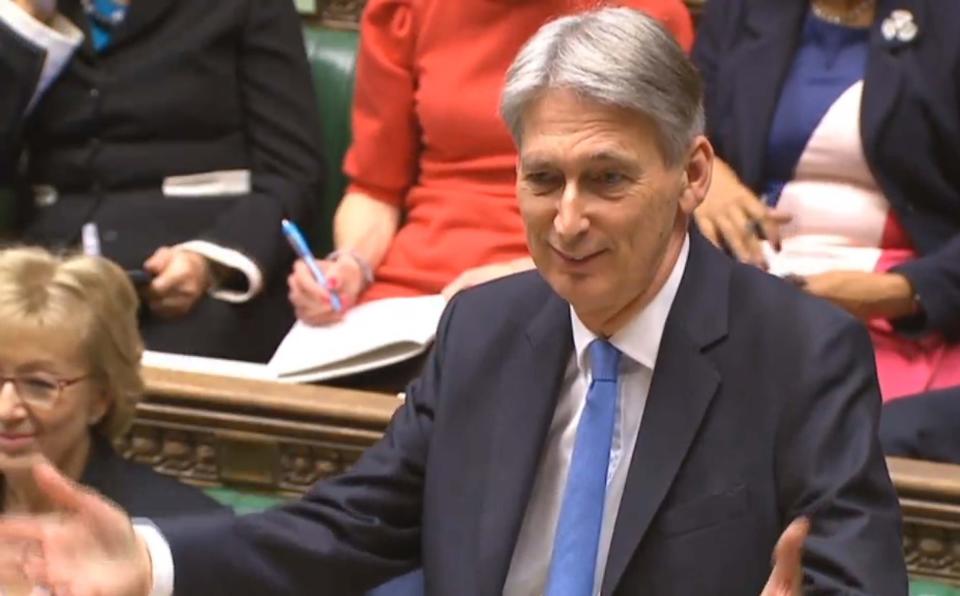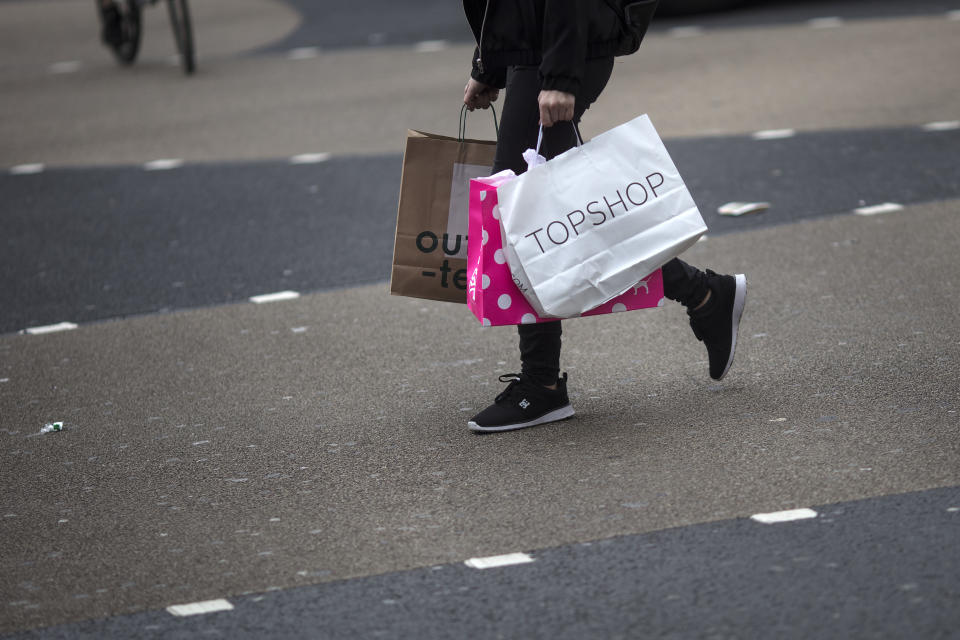Philip Hammond to present his Spring Statement - so what's in it?

Chancellor Philip Hammond is to update voters on the state of the nation’s financial health on Tuesday when delivers his Spring Statement.
But, contrary to previous years, Hammond is not expected to make any major fiscal policy announcements.
Instead, the statement is due to outline in cold, hard statistics where the UK’s finances stand a year out from Brexit.
MORE: Consumer spending ‘has weakest start to year since 2012’
He is due to deliver the statement from about 12.30pm on Tuesday.
When is a statement not a budget?
Contrary to previous years, this will be no Budget – it will involve “no red box, no official document, no spending increases, no tax changes”, according to the Treasury and it will last 15-20 minutes.
The chancellor has, in effect, repositioned the Budget from spring to autumn – and the statement has been moved the other way.
Hammond is due to present the conclusions of the independent Office for Budget Responsibility (OBR).
This will include current GDP growth and borrowing, plus forecasts for the next few years – including whether Brexit is having an impact.

Why the change?
Basically, the autumn statement had grown in significance to become a second budget. It meant that no sooner had the Treasury completed planning for one, it had to begin on the second.
Business and industry, taxpayers and workers, were having to digest, absorb and adapt to potentially two major sets of new taxation policy or benefits changes or spending reviews within the space of a few months.
MORE: NHS will be ‘decimated’ as Theresa May’s £50bn Brexit gamble is revealed
As the chancellor has said: “No other major economy makes hundreds of tax changes twice a year, and neither should we.
“If unexpected changes in the economy require it, then I will, of course, announce actions at the Spring Statement.
“But I won’t make significant changes twice a year just for the sake of it.”

So, it’s not going to be required viewing, then?
Well, Hammond is likely to update MPs on what has happened with the economy since the last budget in November.
He is also expected to reveal how the reported £39bn Brexit “divorce bill” is to be allocated over the next few years.
With the UK leaving the EU in March next year, the OBR is believed to be poised to reveal that growth has been stronger than it was predicting last year.
Economists expect Hammond to announce government borrowing is set to be around £7 billion lower in 2017-18 than had been predicted.
That could see him hint at a future relaxation of Britain’s eight-year austerity squeeze when he addresses MPs.
MORE: Is Donald Trump right that trade wars are ‘good’?
However, speaking to the BBC’s Andrew Marr show, Hammond warned: “There is light at the end of the tunnel because what we are about to see is debt starting to fall after it has been growing for 17 continuous years. That is a very important moment for us but we are still in the tunnel at the moment.”
One issue that is expected to be raised is a consultation on a litter levy on chewing gum and crisps packets.
It’s part of a wider offensive on using the taxation system to tackle single use plastics – such as takeaway cartons and drinks bottles – and whether gum, which is commonly made from a synthetic rubber similar to plastic, should be included.

What do the economists say?
Paul Johnson, director of the Institute for Fiscal Studies, says people should not expect the chancellor to announce the end is in sight for austerity.
“Even though borrowing is only around £40bn that’s still going to be pretty tough,” he said.
“It will require more spending cuts or tax rises not least as the pressures on the NHS and pension spending and so on continue to rise.”
The UK owes about £1.8 trillion – more than twice as high as it was before the financial crash in 2008 and the highest level since the 1960s when the country was paying down its war debts.
And, Sarah Hewin, chief economist Europe at Standard Chartered, told the BBC’s Today programme:
“The chancellor is likely to have some good news on public finances.
“We’ve seen some better-than-expected receipts, tax revenues have been higher than expected.”
But, the UK’s growth is not particularly good when when compared with countries in the G7. “We’re doing better than Italy but worse than every other country,” she says.

 Yahoo Finance
Yahoo Finance 
